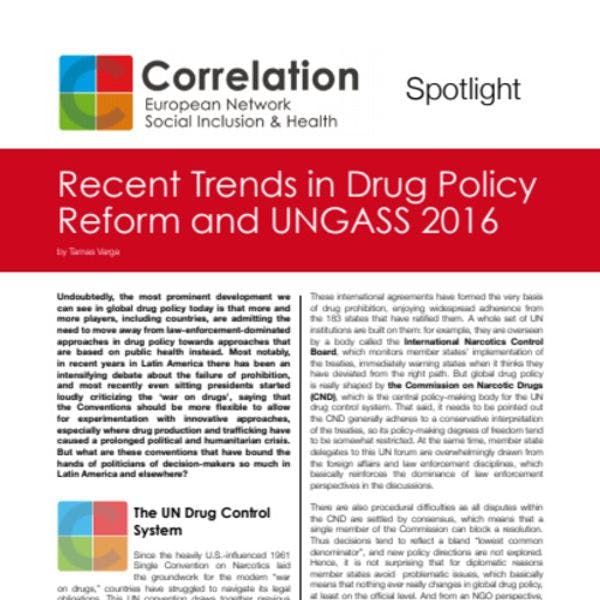Evolutions récentes des réformes en matière de politiques des drogues et l’UNGASS 2016
Les réformes récentes en matière de politiques des drogues s’éloignent d’approches dominées par des actions répressives et se tournent vers des stratégies de santé publique.
Pour en savoir plus, veuillez lire les informations ci-dessous (en anglais).
Abonnez-vous à l'Alerte mensuelle de l'IDPC pour recevoir des informations relatives à la politique des drogues.
Undoubtedly, the most prominent development we can see in global drug policy today is that more and more players, including countries, are admitting the need to move away from law-enforcement-dominated approaches in drug policy towards approaches that are based on public health instead.
Most notably, in recent years in Latin America there has been an intensifying debate about the failure of prohibition, and most recently even sitting presidents started loudly criticizing the ‘war on drugs’, saying that the Conventions should be more flexible to allow for experimentation with innovative approaches, especially where drug production and trafficking have caused a prolonged political and humanitarian crisis.
But what are these conventions that have bound the hands of politicians of decision-makers so much in Latin America and elsewhere?
Keep up-to-date with drug policy developments by subscribing to the IDPC Monthly Alert.
